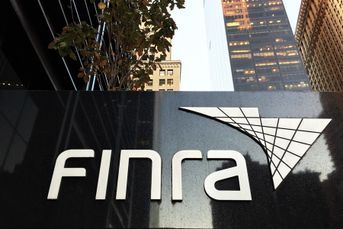Business development companies under pressure from coronavirus fallout

IBDs sold more than $22 billion of the high-commission product over the past decade
Due to the far reaching impact of COVID-19, business development companies — one of the most popular alternative investments sold by independent broker-dealers over the past decade — will feel increased stress due to levels of debt and loan covenants, according to a note issued by Fitch Ratings on Tuesday morning.
The credit rating agency “expects (BDCs) requirement to mark their portfolios to fair market value on a quarterly basis to be an increasing pressure point, in light of falling asset prices resulting from the global coronavirus pandemic,” according to the note.
The very wide spreads on high-yield bonds are one reason for driving down the net asset values of BDCs right now, said one industry executive, who asked not to be named.
“Most of these BDC funds are levered up, perhaps forcing them to break covenants,” the executive said, citing loan covenants, a promise in a bond issuance that requires borrowers to meet certain criteria. “And when loan covenants are broken, BDCs become forced sellers of assets. This is not a great market to be selling into. Can you imagine holding the debt of restaurants or energy companies now? That’s not a great outlook.”
Broker-dealers have sold more than $22 billion of nontraded BDCs since 2010, according to Robert A. Stanger & Co. Inc. One product sponsor and manager, FS Investments, accounts for roughly half of that total.
BDCs are essentially banks, raising capital from investors and making loans to private companies. The closed-end companies invest primarily in debt and equity of private firms. Yields can be attractive because of the BDCs’ exposure to high credit risks amplified by leverage.
“Portfolio marks, on their own, are not necessarily indicative of the ultimate credit performance of individual loans, but unrealized write-downs can pressure credit facility covenants, including asset coverage requirements and minimum equity levels, all of which can have negative rating implications,” according to Fitch.
While Fitch’s note focused on traded BDCs, illiquid, nontraded BDCs were a popular alternative investment product sold by advisers after the credit crisis at independent broker-dealers, which sold billions of dollars of various BDC funds.
Like nontraded real estate investment trusts, many of the nontraded BDCs charged high commissions of 6% to 7%. The goal for some of the products was to eventually list them on an exchange or merge with a listed company, thus giving investors an eventual exit from the company.
Fitch noted that one FS Investments BDC, the listed FS KKR Capital Corp., had the highest exposure to unfunded loan commitments, or contractual obligations for future funds, among the 11 BDCs it examined, but that exposure drops considerably for the company when joint ventures and unfunded equities are excluded.
“As the largest BDC complex in the market, FS KKR Capital is actively engaged with its portfolio companies to provide support during these challenging times,” wrote a company spokesperson in an email.
Learn more about reprints and licensing for this article.







